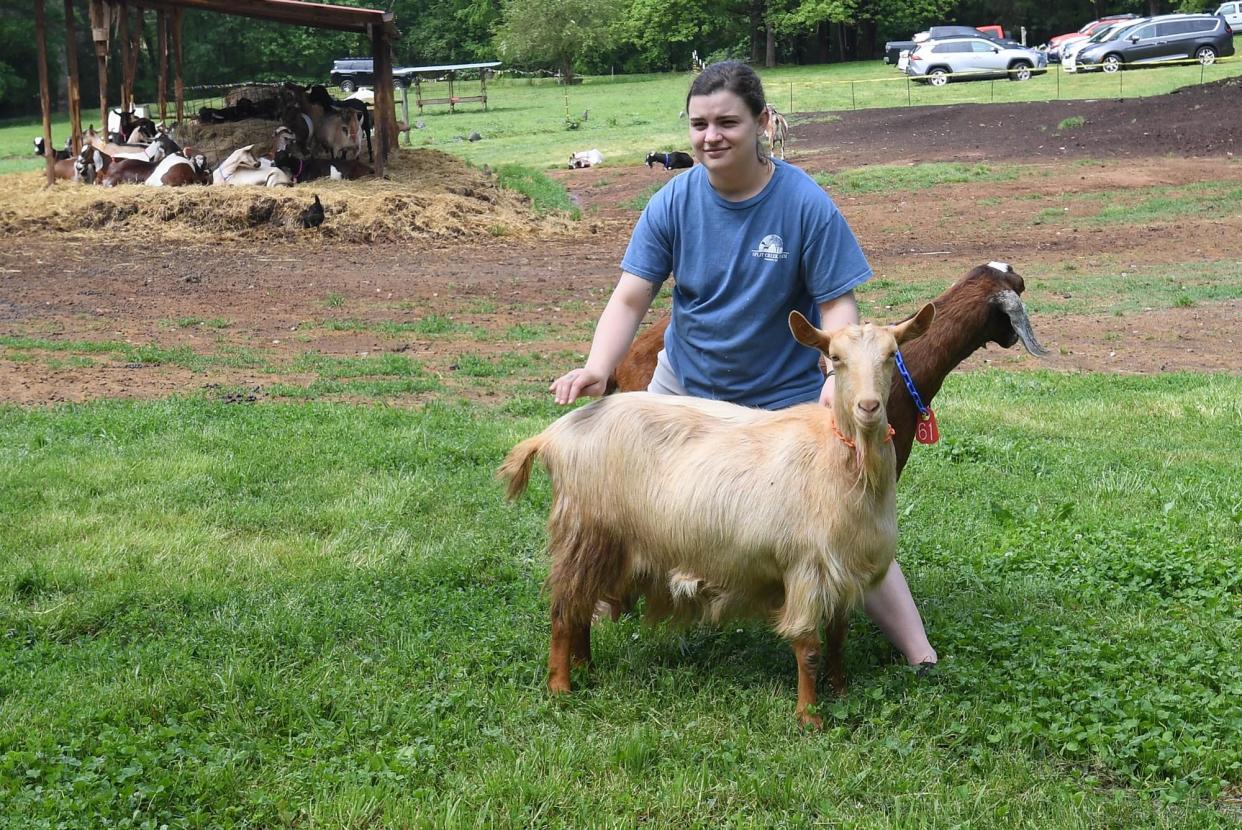Ohio has goats descended from a rare royal English breed. Here's what to know

Ohio is full of farms with dozens of animals. Now, suddenly, Ohio has a farm with descendants from a rare goat breed that was imported from England in the 1990s.
Golden Guernsey goats are a rare breed from England. King Charles III bestowed the royal title on them, calling them the “Royal Golden” Guernsey goats on Tuesday, according to AP. This title brings more awareness to the rare breed as they are considered an at-risk species.
Here’s more about these goats and the Ohio farm helping to breed a close relative of the Golden Guernsey.
Are Ohio's Guernsey goats now royal goats because of King Charles III?
Not quite.
Ohio's Guernsey goats aren't officially royal, but they're not far off. Genuine Golden Guernsey goats aren't able to be imported to the United States.
That hasn't stopped Everyday Acres in Granville, Ohio (east of Columbus near Newark), from providing Ohioans the next-best thing. We are not kidding (pun intended).
Where to find Guernsey goats in Ohio
Maria Moss, owner of Everyday Acres, confirmed to the Dispatch that her farm has several British Guernsey goats. In the U.S., that's typically as close as you can get to Golden Guernsey goats.
Everyday Acres raises laying hens and British Guernsey Goats on a pasture-based system, according to their website.
Since 2016, it has produced rare livestock breeds on 6.5 acres of farmland, including British Guernsey Goats descended from purebred Golden Guernsey goats.
Several goats in the Everyday Acres' herd are registered with the British Goat Society.
How are Guernsey goats bred to be close to Royal Golden Guernsey goats?
There are a small number of Golden Guernseys in the U.S. bred from embryos imported in 1996, according to Guernsey Goat Breeders of America. Only a few have been alive since.
There are three different kinds of Guernsey Goats:
Purebred Golden Guernsey (GG) bucks
British Guernsey (BG) bucks
Herd Brook 2 (HB2) bucks
American breeders can introduce the Golden Guernsey genetics into a lineage with alpine-type dairy does and semen from a purebred or British Guernsey sires through careful selective breeding, also called a breeding up program. A few generations later, domestic Guernsey goats will become British Guernseys with seventh-eighths Golden Guernsey genetics, the GGBOA states on its breeding up page.
Later, domestic Guernseys can refine their genetics to be considered full British Guernseys with a predominance of Golden Guernsey genes and traits.
What are Golden Guernsey goats?
The Golden Guernsey goat is a rare, yet remarkable, breed from the island of Guernsey in the English Channel. These goats are considered “at risk” on the rare breeds watchlist but can be bred using their purebred semen.
These goats produce good milk, are known to be very friendly, and are ideal for homesteading and cottage industry dairy production.
Guernsey Goats are typically of golden color, in all shades, ranging from very pale cream to deep russet or bronze. Their ears are usually erect and set low, their noses are straight or dished, and their hair flows are short or long, and can look like a skirt or curtain.
Are Guernsey goats still being imported from England?
No. Strict animal regulations in the U.S. no longer allow for Guernsey goats to be imported. However, semen can be imported to be used for breeding.
This article originally appeared on Cincinnati Enquirer: What England's royal decree has to go with Ohio's goat population

